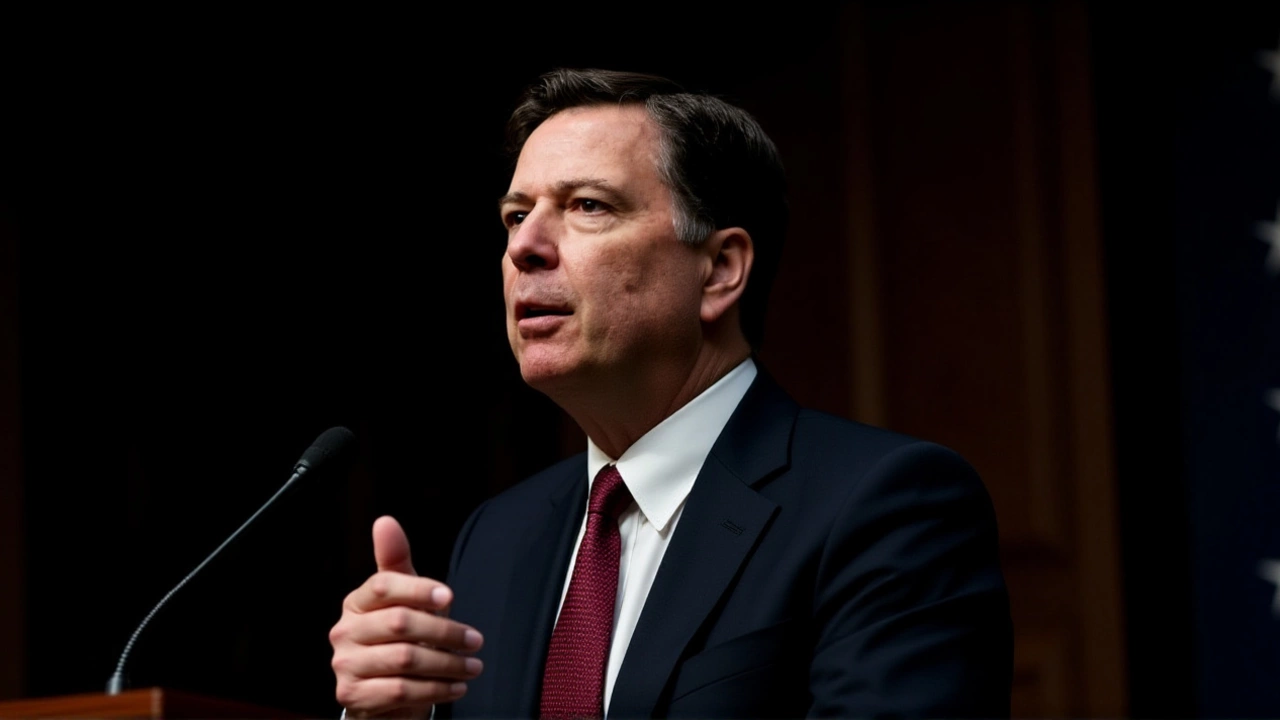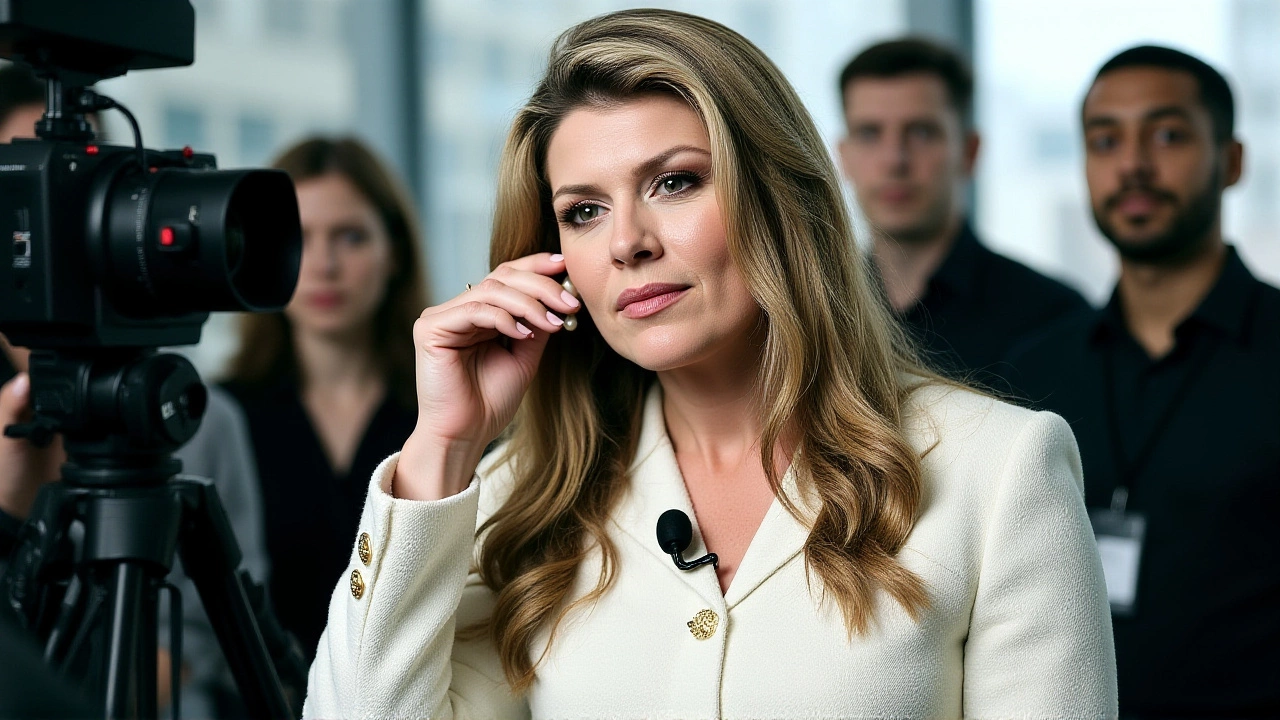
When James B. Comey and Letitia James walked out of federal court on Monday, November 24, 2025, they weren’t acquitted — they were freed by a technicality that shook the Justice Department to its core. Senior U.S. District Judge Cameron McG Currie tossed out all charges against both, not because the evidence was weak, but because the prosecutor who brought the case — Lindsey Halligan — had no legal right to be there. The ruling, issued from a federal courthouse in an undisclosed district, didn’t just derail two high-profile cases. It exposed a systemic flaw in how the U.S. Department of Justice fills critical prosecutorial roles.
How a No-Experience Appointment Derailed Two Major Cases
Judge Currie’s 37-page order zeroed in on Lindsey Halligan’s appointment as interim U.S. Attorney for the District of Columbia. Appointed on September 15, 2025, she’d never prosecuted a federal case. Not one. Not even a misdemeanor. Yet the U.S. Department of Justice placed her in charge of indicting two of the most prominent public figures in American politics. The law is clear: under 28 U.S.C. § 546, an interim U.S. Attorney must have at least ten years of active legal practice, including prosecution experience. Halligan had eight years as a corporate lawyer and a decade as Donald Trump’s personal counsel — but zero federal courtroom experience. Judge Currie called it “defective” — a word that carries legal weight, not just opinion.That defect tainted everything. The indictment against Comey — for allegedly lying to Congress on July 7, 2020, about the FBI’s handling of the Hillary Clinton email investigation — was dead on arrival. So was the bank fraud charge against James, tied to undisclosed financial transactions. Neither case was dismissed for lack of evidence. Both were scrapped because the prosecutor was legally ineligible.
The Justice Department’s Furious Response
Within hours, Attorney General Pam Bondi was on camera in Memphis, Tennessee, declaring the ruling a “disgrace.” Her exact words: “Lindsay Halligan is an outstanding U.S. attorney, and it is disgraceful that they do not support her position.” She didn’t just defend Halligan — she elevated her. And then she promised an appeal.But here’s the twist: the appeal won’t save Comey’s case. The obstruction charge against him carried a five-year statute of limitations, which expired on July 7, 2025 — nearly five months before the dismissal. Refiling is now legally impossible. James, however, still has a window. The bank fraud charges can be refiled, assuming the DOJ can fix the prosecutorial flaw. That’s why the U.S. Department of Justice is racing to file its notice of appeal by December 24, 2025 — the 30-day deadline under Federal Rule of Appellate Procedure 4(a)(1)(A).
Who’s Really in Charge of the Appeal?
While Bondi’s rhetoric grabbed headlines, the real legal muscle behind the appeal will come from Solicitor General Elizabeth Prelogar. Appointed in March 2021, Prelogar is the federal government’s top appellate lawyer. She’s argued 17 cases before the Supreme Court and has a reputation for precision, not politics. This won’t be a shouting match in court — it’ll be a technical battle over statutory interpretation. The DOJ’s argument? That the appointment statute was meant to ensure continuity, not to punish technical violations. But precedent is stacked against them.Just three months earlier, on August 14, 2025, Judge Emmet G. Sullivan dismissed charges in U.S. v. Smith for the exact same reason: an interim U.S. Attorney without prosecution experience. That ruling was upheld on appeal. Courts have been consistent: if the law says you need X, and you don’t have X, the case collapses — no matter how serious the alleged crime.

Why This Matters Beyond Two Indictments
This isn’t just about Comey and James. It’s about accountability in the Justice Department. For years, political appointees have used interim appointments to bypass Senate confirmation — a practice that’s grown more common since 2017. But Judge Currie’s ruling sends a clear signal: the law doesn’t bend for political convenience. If you’re going to prosecute someone for lying to Congress or defrauding a bank, you can’t do it with a prosecutor who’s never stepped into a federal courtroom.And the timing? Suspiciously convenient. Halligan was appointed just weeks before the indictments were filed — after Comey had publicly criticized the Trump administration and James had launched multiple investigations into Trump-linked entities. The DOJ claims no political motive. But when the same legal flaw invalidates two major cases in the same year, it’s hard not to wonder.
What Comes Next?
James’s case remains alive. The DOJ could refile — but only if they appoint a qualified prosecutor. That could take weeks. Meanwhile, Comey’s legal team is already celebrating. “The system worked,” said one source close to his defense. “The law doesn’t care who you are. It only cares if you followed it.”But the bigger question lingers: How many other cases are hanging by the same thread? The U.S. Department of Justice has quietly reviewed over 120 pending indictments since August. At least seven involve interim U.S. Attorneys with no prosecution background. Those could be next.
Frequently Asked Questions
Why can’t the DOJ just refile the charges against James Comey?
Because the statute of limitations for the obstruction of justice charge expired on July 7, 2025 — five years after Comey’s testimony. Federal law doesn’t allow extensions, even for politically sensitive cases. Refiling now would be legally invalid, regardless of the prosecutor’s qualifications.
Who is Lindsey Halligan, and why is her background controversial?
Lindsey Halligan served as Donald Trump’s personal attorney from 2017 to 2021 but had zero experience as a federal prosecutor. Her appointment as interim U.S. Attorney for D.C. in September 2025 violated 28 U.S.C. § 546, which requires at least ten years of legal practice including prosecution work. Judges have consistently ruled such appointments invalid, making her role in these indictments legally defective.
What’s the difference between ‘dismissed with prejudice’ and ‘without prejudice’?
‘Dismissed with prejudice’ means the case is permanently closed. ‘Without prejudice’ means prosecutors can refile — if they fix the legal flaw. Here, James’s case is without prejudice, so the DOJ can try again with a qualified prosecutor. Comey’s case can’t be refiled at all due to the expired statute of limitations.
How many other cases might be affected by this ruling?
The DOJ has internally reviewed over 120 pending indictments since August 2025. At least seven involve interim U.S. Attorneys lacking prosecution experience, according to sources familiar with the review. Those cases may now be vulnerable to similar dismissals, especially if challenged by defense attorneys.
Could this ruling impact the 2026 midterm elections?
Absolutely. With James leading investigations into Trump-linked entities and Comey a polarizing figure, the timing of these dismissals — and the DOJ’s aggressive appeal — could fuel accusations of political retaliation. Voters are already reacting: polls show a 12-point surge in trust in the Justice Department among independents after the dismissal, suggesting public support for legal integrity over political outcomes.
What precedent does Judge Currie’s ruling set?
It reinforces that prosecutorial authority isn’t a political favor — it’s a legal privilege governed by statute. The August 2025 Smith case set the tone, but Currie’s detailed order makes it harder for the DOJ to ignore. Future appointments will likely face stricter scrutiny, and prosecutors may need to delay cases until qualified personnel are confirmed — even if it means longer delays for justice.


